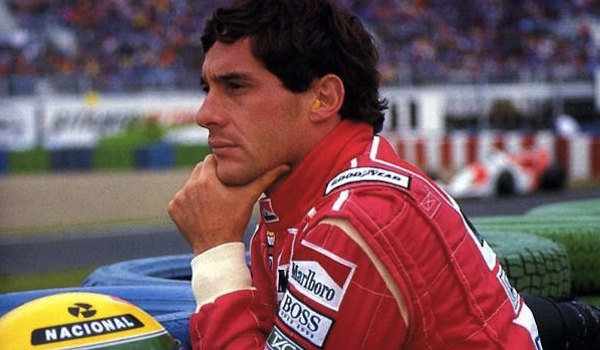Senna

Senna takes the idea of a non-fiction film to a whole new level. The film’s presentation isn’t that of your average documentary. Instead of talking heads and flashy visuals, the film is composed entirely of archival footage, with an unseen first-hand interview thrown in here and there. It makes the film, about the life and career of one of Formula 1’s most famous and successful drivers, quite a bit more personal than it might otherwise feel. And despite some serious lionization of the racer, the film is insightful and hard-hitting.
When a young Brazilian go-kart racer named Ayrton Senna travels to Europe for his first race, few—including him—thought he’d become a worldwide sensation. But Senna carried two things with him that made his ascent to the top of the racing world inevitable. One was his faith. He believed God was always watching over him and helping him achieve his dreams. The other characteristic was an unparalleled will to win. Senna knew the risks he was taking every time he pulled up to the starting line (so often on pole position), but he just couldn’t help himself—he needed to race. And race he did, for years, winning multiple F1 championships, until his pursuit of another claimed his life in 1994 at the age of 34.
Though Senna is undoubtedly a racing film, non-racing fans shouldn’t stay away, for the film’s messages are universal. Senna could have been a Scrabble champion, it doesn’t matter. The racing is just a method to tell this man’s story as an underdog and a national hero. The scheming behind the scenes of F1 make Senna a vulnerable individual, while the suffering across Brazil during the 1980s and early 1990s help us understand how and why a driver could become a real source of pride on an international stage.
Then there’s Senna’s actual racing career. At the peak it, he engaged in a professional rivalry with fellow F1 legend Alain Prost, which is probably the film’s most interesting subplot. The two find themselves so far ahead of all others in the world of F1 racing that, despite being teammates, they can’t help but want to beat the other. Unfortunately, their rivalry gets intense—fast—and eventually, they’re unable to be teammates. The battle of wits between the two men, though, is very suspenseful and presented as if it came out of a narrative film. It’s stories like these that keep non-racing fans enthralled, and the very same stories that, I’m sure, are very nostalgic for Senna’s and F1’s most dedicated followers.
My one complaint is that Senna is presented as if he was a saint. I don’t doubt he was a good man, but every story has two sides, and though we hear from Prost a few times, there’s no one present who has anything remotely negative about the man. This makes him feel a bit one-dimensional on a few occasions. It’s not a deal-breaking problem—the film is too engaging to be brought down much by this—but it prevents it from being truly excellent.
Senna is as good a documentary as I’ve seen this year. Its presentation is original, and its material is very compelling. I think it should have a decent shot at a Best Documentary nomination next year, and if it doesn’t, it’ll be because the branch doesn’t have any racing fans and didn’t take the film seriously. That’s the only reason to snub such a strong film.













